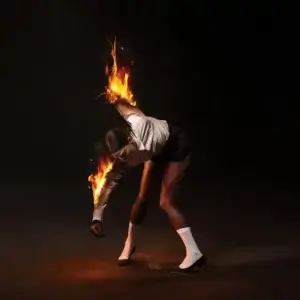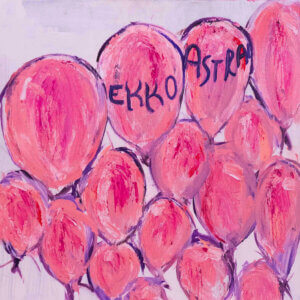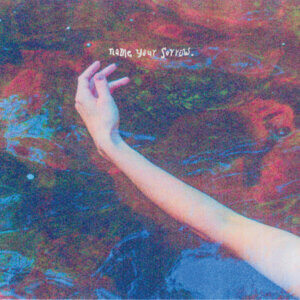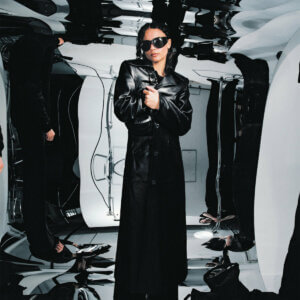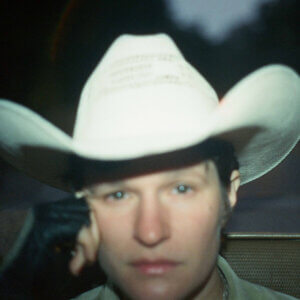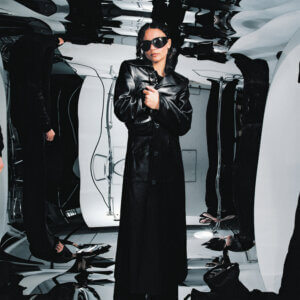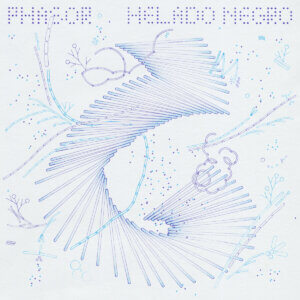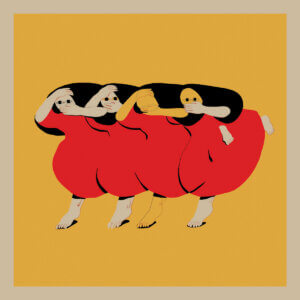Interview With Neil Halstead from Slowdive

Slowdive were never fully appreciated in their initial run from 1990-1995. Having toured with both Blur and Ride, they were always in the shadows of more single-ready artists in lieu of becoming alternative stars themselves. Having dissolved shortly after the release of their third album (and morphing into the truncated, acoustic-based Mojave 3) the band’s notoriety slowly grew over time as the lush landscapes of their records became a basis for a legion post-rock and indie artists.
Now newly reunited, the band is set to record a new album this January, but not before pumping up a lot of fans with a slew of North American tour dates this fall, many of which are already sold out. On the eve of the tour, which begins October 22 in Washington D.C., we got in touch with founding member and frontman Neil Halstead to talk about the problems with Slowdive’s initial run, the joys of revisting some old pedals, and coming back to full recognition.
Northern Transmissions: What would you say was your biggest regret in your initial run?
Neil Halstead: I think we made a few bad business decisions I suppose. One regret I have is that the first album we did [Just For a Day], we didn’t really have any songs going into the studio. We wrote the album, recorded it, and mixed it within a six-week period. We had decided quite early on not to put any of the early singles on it, and I sort of regret that decision. I think we could have made a better record if we had more time. That kind of thought process was a bit strange. But I think we wanted to make a record that was completely new.
NT: Was the approach to Souvlaki different?
NH: Yeah, the whole process was very different. We spent a lot of time writing. We actually scrapped a lot of stuff and started again at one point. That was definitely more of a torturous approach to making a record.
NT: What was the one thing you were most happy about in terms of Slowdive before the band dissolved?
NH: For me, the last record Pygmalion was probably our best moment. I feel like that record was the most realized. And that wasn’t an easy record to record. And the band was starting to disintegrate a bit. Whenever anyone asks me about my favorite Slowdive record, I always say that album. And probably the first three EPs as well. They really caught us at a moment when we were kind of excited and inspired and at a good point. I think those EPs were really good. I think that Souvlaki is the one that people pick out as the best Slowdive record, and that always felt like less then an album, more like a collection to me. It was kind of an eclectic sounding record.
NT: Can you describe touring in the US the first time?
NH: The second tour with Ride was amazing. We were a very young band and touring around the States was a great experience. I think we always felt like we had a lot of support in America. It was always a great experience for us as a band.
NT: Can you describe how the changeover from Slowdive to Mojave 3 took place?
NH: I started working on some songs that I kind of wanted to do because Pygmalion was a sample-based record more than it was a guitar record. So I just wanted to try out something acoustic just to try it. The first Mojave record was that with a lot of reverb on it. It was just a different approach. I was really interested in writing songs. I did the demos. Somehow the demos had gotten to 4AD and they said they were interested in putting a record out so at that point we didn’t even really have a name for the band yet, it was just this little project.
NT: In the time away from Slowdive, had you noticed your influence increasing over the years?
NH: No, not really [laughs]. There were little things along the way. There was a compilation where they had all the artists do Slowdive covers. It was a compilation called Blue Skied an’ Clear. So along the way there was kind of this interest coming from more electronic music. But to be fair, I don’t think any of us realized until we reformed the band, that the band had grown in stature. It was a nice surprise to be honest. It’s also been interesting at the gigs because there’s been quite a young audience. We were kind of expecting it to be a bunch of people our age reliving their youth.
NT: How did the reunion come to be?
NH: We just started chatting last November about what it’d be like to do a new record. I was talking to Nick and Christian, and Simon and they were keen on the idea of doing a record. And then we figured if we’re going to do that, we should probably do a few shows so I guess that was the thought process.
We ended up doing way more shows then we thought we were going to do. There ended up being way more interest than we even realized. When we finish the American tour then we’re going to sit down to figure out how to do something new.
NT: Has the reception been surprising? You’ve already sold out about half of your North American tour dates.
NH: Yeah it’s been great. I think we all feel we’ve been very lucky to be able to come back to such a great audience. We had a great summer. We played a lot of festivals in Europe. It’s been really nice. Even beyond music – it’s been really nice to just reconnect with friends.
NT: Is there any one particular song or songs that are the most exciting to play again?
NH: Playing “Golden Hair” was fun, but doing songs off Pygmalion — we never got to play those songs. We split up before we could play any of them. Figuring that out and playing those songs has been great because it feels like we’re doing something new.
NT: Do you feel like everything clicked back into place right away?
NH: The only thing we struggled with was remembering the old tunings. It was a bit daunting sitting down with Christian where we were like, “Fuck, like what tuning were we using?” And then there was the case of searching for the pedal boards, which was fun because there’s so many more pedals out there now, then when we were kids. There’s so many interesting, good quality pedals. Initially I think we did go on eBay to go find some of the pedals we used to use, but we quickly realized that there were much better pedals out there. I definitely enjoyed that process, and reconnecting with the guitar pedal technology, because I’ve been spending the past 15 years playing acoustic guitar.
NT: Can you tell me about some of the tunings you use?
NH: Top secret information [laughs].
Latest Reviews
Tracks
Advertisement
Looking for something new to listen to?
Sign up to our all-new newsletter for top-notch reviews, news, videos and playlists.
